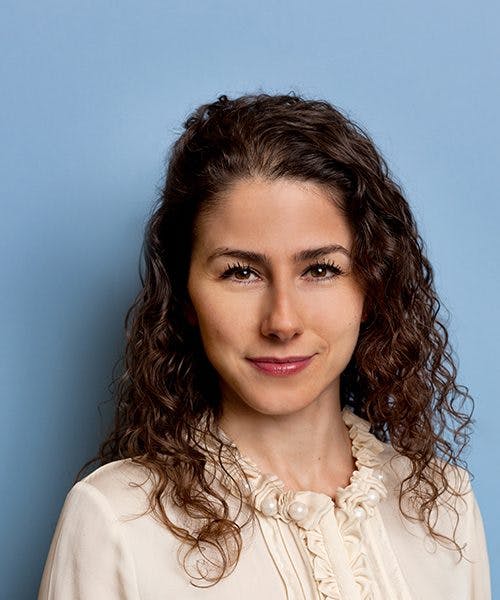Dr Arzum Akkas, Professor, University of Massachusetts, Amherst
Arzum Akkas stumbled upon the food waste problem while she was a PhD student. “I was listening to a beverage company operations executive talking about a behaviour in sales operations, “this creates so much waste, millions and millions of dollars’ worth of waste,” he said. “This struck me,” recalls Arzum, who wondered if the behaviour could be changed. “That’s when I started investigating the waste problem in the consumer-packaged-goods industry.”
Arzum quickly realized the problem was complex, involving incentive issues and certain operations practices that provide efficiency gains. So, she started her research with an analysis of the root causes of food waste, and it soon became clear that a poor understating of the drivers (how much waste is generated by which function or practice) is a barrier to tackling the problem. “That became my first paper,” she recalls, “In several follow-up works, I studied one root cause at a time analysing complexities associated with each, while offering tools to control waste.”
Food waste is not just a financial or a resource efficiency problem, says Arzum. The overall size and scope of the problem is massive, and that has environmental implications. “It’s estimated that 30% of the food produced worldwide never gets eaten,” she says. “This matters for climate change (due to emissions from production, distribution, and decay of food at landfills); it matters for water scarcity; and it matters for water pollution (e.g., due to use of pesticides in farming, poor waste management practices at concentrated animal farms). We can all contribute to reducing it in various ways—through data analytics, start-ups, research, teaching, and personal habits.”
This is what Arzum strives to help her students understand in the Social Impact elective she teaches called Environmentally Sustainable Supply Chains. “It’s very fulfilling to advance their knowledge about environmental issues and teach them supply chain management with an environmental lens,” she says. “Students who elect my course tend to be conscientious and care about social issues, which is extremely rewarding for me because I feel like I can connect with them on a personal level, since we share the same values.”
Before her academic career, Arzum worked in the private sector for eight years as a consultant in supply chain management technology, an operations manager at a major consumer-packaged-goods company, and a management consultant. “I give real-world examples in class from my professional experience as much as I can,” she says. In her course, Arzum dedicates two sessions to food waste. “In one of these sessions, we cover a case study I wrote about the unsaleables (expired and damaged items) problem in the consumer-packaged-goods industry, which is based on one of my research papers.” Arzum also uses her extensive academic and professional network to bring the ideas and research of other scholars and practitioners into the classroom through guest speakers, exposing her students to a broad-range of perspectives and solutions.
“For me, teaching is essentially making an impact at scale,” Arzum says, “because many of the students we educate and influence in this program are going to go back into the real world and make an impact.”

Main office
ECR Community a.s.b.l
Upcoming Meetings
Join Our Mailing List
Subscribe© 2023 ECR Retails Loss. All Rights Reserved|Privacy Policy
